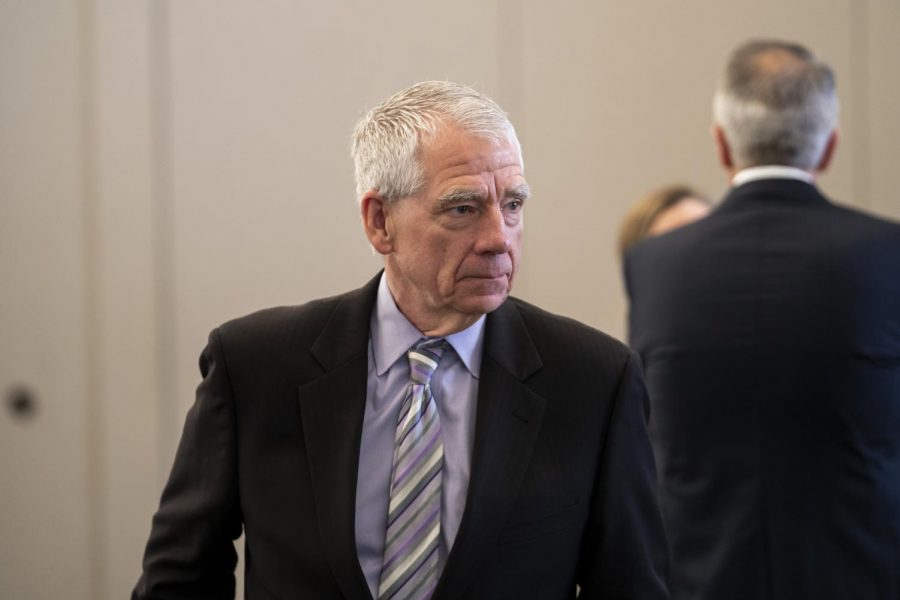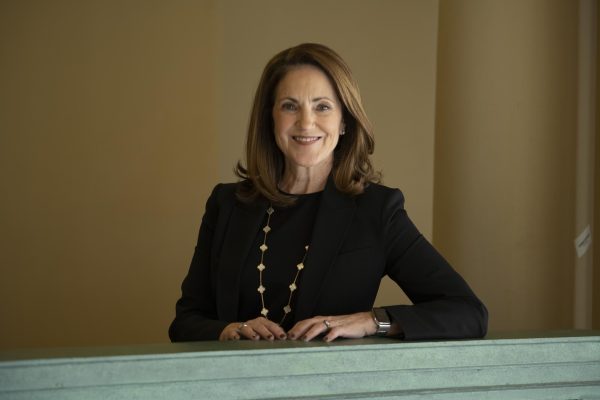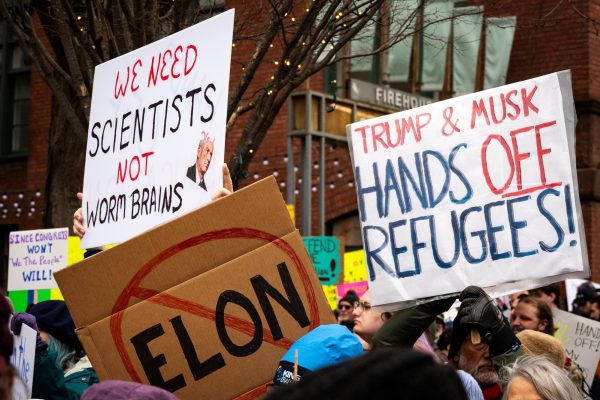UVM forced to make budget cuts amidst pandemic’s economic crisis
Mac Mansfield-Parisi/Vermont Cynic
Richard Cate, vice president for finance and UVM treasurer, walks to his seat during the board of trustees meeting, Jan. 31. Cate became vice president for finance and treasurer in 2013.
As COVID-19 continues to wreak financial havoc on workers, families and schools all across the nation, UVM faces further budget cuts that will impact the entire UVM community.
After a notice from Provost Patty Prelock, Vice President of Finance Richard Cate and UVM President Suresh Garimella, college deans were asked to trim budgets for their colleges, according to memos from deans.
These memos detail the budget changes made for the next academic year in regards to both University-wide changes and college-specific changes. All budget changes are due to be sent out to faculty by May 1.
The University itself has not imposed any pay cuts on faculty, according to an email statement from UVM spokesperson Enrique Corredera.
“As student interests change over time, teaching needs change. They may increase in some areas and decrease in others,” Corredera stated. “This year, we are being particularly careful to not over-commit ourselves.”
So far, William Falls of the College of Arts and Sciences, Scott Thomas of the College of Nursing and Health Sciences and the College of Education and Social Services, Jean Harvey of the College of Agriculture and Life Sciences and Bryn Geffert of Libraries have provided memos.
University-wide financial actions include:
- Adoption of a three-month interim budget through Sept. 30 to allow more time to plan the full-year budget
- A hiring freeze on all faculty and staff positions
- A travel freeze for faculty, staff, and students
- Cancellation of a planned bond issuance that would have increased UVM’s debt level
- Renegotiating contracts across the University and more deeply scrutinizing requests for independent contractors and additional payments
Colleges specifically will also face certain budget cuts, including hiring freezes for all faculty and staff, workload adjustments and pay cuts. Deans of colleges will also take a voluntary pay cut of 8.3%.
CAS will also face further cuts to faculty. Non-tenure track faculty will have their workload reduced by 25%, and their pay will be docked accordingly, said Julie Roberts, president of United Academics, the faculty union at UVM.
“What is most upsetting about these budget cuts is that our non-tenure track faculty are really bearing the brunt of it,” Roberts said. “These budget cuts were expected, but I would have preferred something with more consultation and a little bit more evenly spread.”
Though these actions are unsettling, all parts of the University must take sacrifices to manage the financial situation, Falls stated in the memo.
“These measures will impact nearly every member of our community in some way,” he stated. “My hope is that it will be possible to reverse some or all of these measures in the near future.”
Associate deans will take a voluntary pay reduction of 25%, and department chairs will be taking a reduction of 15% to administrative stipends.
Similarly to CAS, CALS will take an increased workload for tenure-track faculty and lecturers to reduce or completely eliminate the need for part-time lecturers.
Though some faculty members may experience a decreased workload, all faculty members will enjoy full benefits from the University, according to Corredera.
In response to pay cuts and cuts to faculty members, UVM’s Union of Students created a petition demanding UVM to stop faculty cuts and find other ways to balance the budget deficit. As of April 28, it has over 300 signatures.










